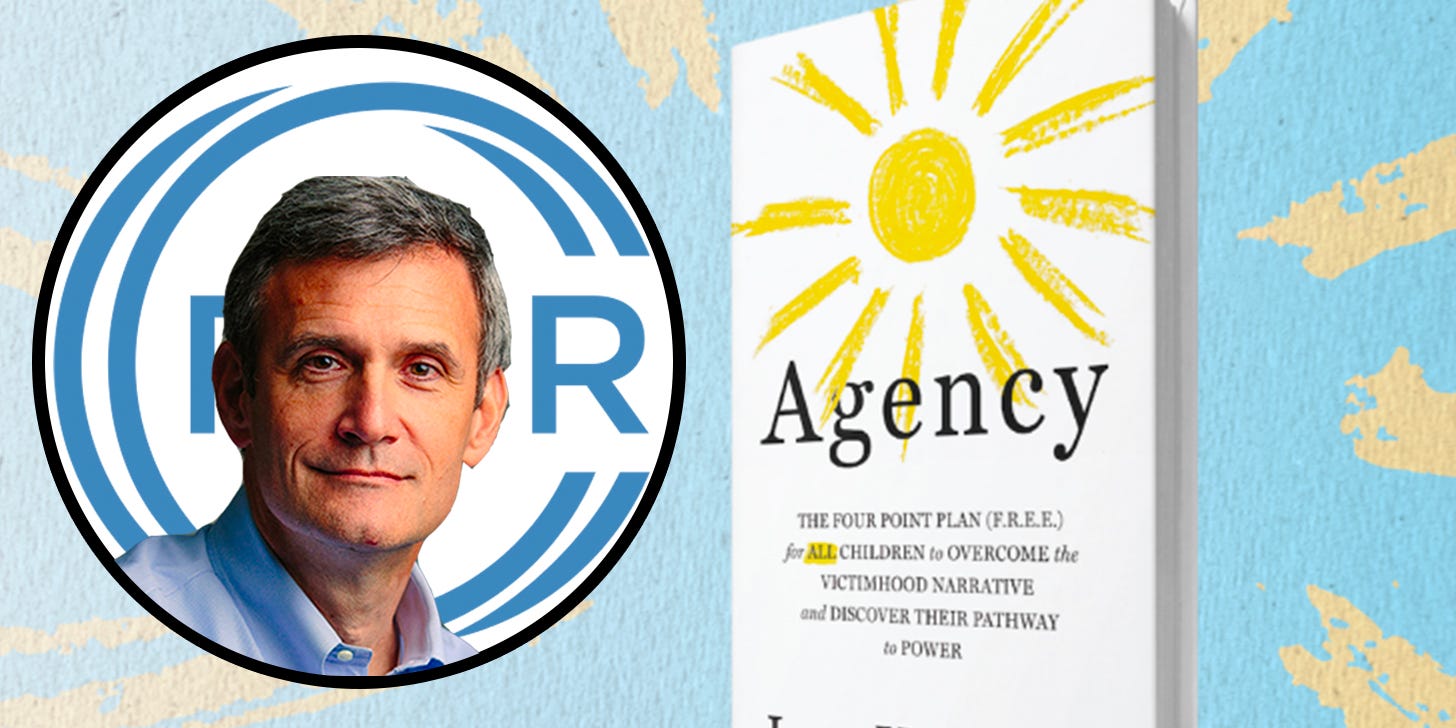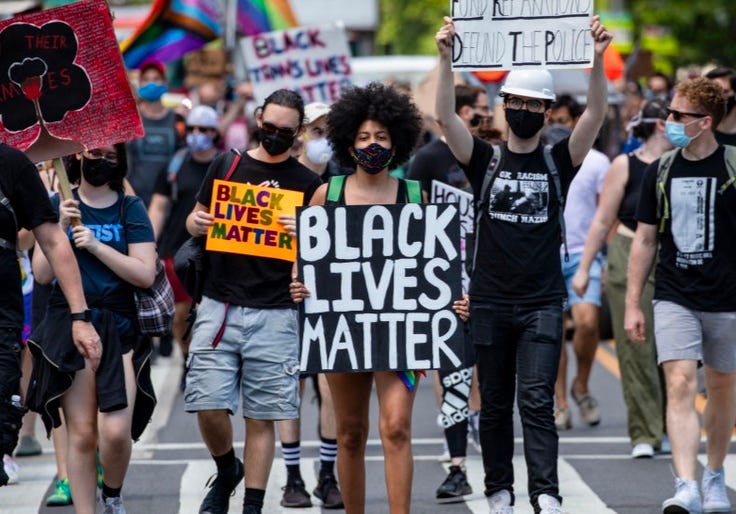FAIR Utah: Improving Communication and Understanding
This week on our Substack, we debut a new series called FAIR Chapter Spotlight, where we profile the grassroots, on-the-ground efforts of everyday FAIR volunteers—parents, teachers, and community members—as they work to promote a common culture of fairness, understanding, and humanity in their communities. First up, FAIR Utah, featuring chapter leaders Alicia Alba and Jefferson Shupe.
Since 2021, Alicia and Jefferson have worked together to introduce a pro-human approach to opposing racism and intolerance throughout Utah. They have hosted speakers who engaged in the 1960s Civil Rights movement, and reached out to local and state government officials to share FAIR’s resources, goals, philosophy, and initiatives. They have also collaborated with parents and local school boards to implement the FAIRstory curriculum into Utah school districts. Their local focus helps the chapter amplify its voice and influence as they continue to expand throughout the state. When talking about the importance of a grassroots movement like FAIR, Alicia notes that, “we don’t have to do everything, but we do need to do something. And I believe that when everyone contributes their unique ‘something’, it will be more than enough to change the world.”
I spent years hating activists. Then I tried listening to them
Also on our Substack, Ye Zhang Pogue writes about her initial animosity toward social justice activists, and how taking a different approach opened allowed her to have more compassion for them, despite her strong disagreements with their ideologies and behaviors.
It was hard for me to hear these activists and accept their concerns. I had been fighting with them for nearly five years. I was tired and angry. I had endured disrespect, defamation, and vicious personal attacks from many activists. But I started to wonder what those activists had been through. I paid attention to their decades of advocacy instead of their troublesome proposals. I was fully aware that many American people are reluctant to have conversations about race, and it wasn’t until George Floyd's murder brought the topic to the center of Americans' consciousness that any of it began. I started to think about how hard it has been for the activists as well, how tired and angry they were, and what disrespect and vicious attacks they had suffered.
The bravest man in education reform
For the Fordham Institute, FAIR Advisor Robert Pondiscio profiles FAIR Advisor Ian Rowe, and his recent book Agency: The Four Point Plan (F.R.E.E.) for All Children to Overcome the Victimhood Narrative and Discover Their Pathway to Power. As a fellow educator, Pondiscio writes about Rowe’s “inspiring personal story and the data he marshalled in support of nurturing students’ sense of agency,” and the ways that Rowe’s perspectives and approach can be a major turning point in our education system.
Ian is my colleague at the American Enterprise Institute, a Fordham Institute board member, and a friend, so my views are not dispassionate. But I have long considered him to be the bravest man in education reform precisely for his ability to remain genially unflappable and steadfastly committed to his advocacy in the face of these kinds of these kinds of intemperate condemnations from critics who are ideologically committed to the view that structural barriers are far more decisive for kids in determining their educational and life outcomes than their personal habits and choices.
How to Fix the Bias Against Free Speech on Campus
For The Atlantic, Conor Friedersdorf discusses “the problem with administrators, often operating within or in conjunction with diversity, equity, and inclusion (DEI) bureaucracies, who investigate speech on behalf of any complaining party no matter how weak their underlying claims,” and proposes “a way to rein in such investigations: Universities should empower their faculty to check administrators and DEI staffers who undermine freedom of speech”:
If professors—or perhaps representatives chosen by professors—could sanction and, in extreme cases, terminate anyone who violates First Amendment rights or free-expression policies, administrators would have a powerful new incentive to avoid speech-chilling excesses. Administrators and DEI officials can, of course, be disciplined or fired by higher-ranking university bureaucrats, but they are essentially unaccountable to the scholars and students whose expression they are stifling. Faculty members are more likely than bureaucrats to understand that free speech is essential to academic freedom. On many campuses, when administrators have infringed on faculty or student rights, professors—especially law professors steeped in First Amendment law—have been unafraid to speak up.
The limits of black and white thinking
For The New Statesman, Tomiwa Owolade reviews Ibram X. Kendi’s latest book, How to Raise an Antiracist—which, according to Owolade, is “yet another variation on the theme of trying to understand and fight racism” that Kendi has been promoting for the last six years.
If you have read one Kendi book, you have read them all. And whether one agrees or disagrees with his arguments, they are the very opposite of complex. He thinks in binaries. For Kendi, there are no ambiguities when it comes to understanding racism, no shades of grey. …What is most striking, however, isn’t Kendi’s lack of sophistication. It is the exceptionally bland tone of the book. “If children can’t routinely make mistakes and learn from them, then how will humanity grow?” he asks. “Conceit and insecurity are the twin children of being racist,” he proclaims with faux-profundity.
Inside the Woke Meltdown at One Domestic Violence Organization
For The Washington Free Beacon, Aaron Sibarium details controversy at Women Against Abuse, “one of the largest domestic violence nonprofits,” which brought on DEI consultants after the death of George Floyd in the summer of 2020. “By November 2020,” the article states, the organization “was offering to pay ‘BIPOC’ employees more than their white counterparts and discouraging black abuse victims from calling the police. Its employees were also at war with each other, bickering over whether Jews are a persecuted minority group and whether there is such a thing as a non-racist white person.”
These events and others “prompted Nicole Levitt, an attorney with the group’s legal center, to file a discrimination complaint against her employer with the Equal Employment Opportunity Commission.”
“Love the hell out of them” – The blueprint John Lewis left us
For the Milpitas Beat, Brittany Talissa King reflects on the second anniversary of John Lewis’ passing, and that while she “parse[s] through articles, photographs, and interviews commemorating him and the civil rights legacy — [she] cannot help but notice the drastic difference between the activists’ humility and our egocentric culture.”
Something is going on in this country that needs to be confronted. And perhaps it’s bigger than a political issue or social matter. It might just be the nasty condition of our hearts.
What if we took notes on the lives of Congressman Lewis and Reverend King, Jr.? What if our current division is heavily contingent on what we consume? Could there be a correlation between our internet wars and our interpersonal distrust? Is there something to be said about glorifying drama and violent entertainment and the toxicity ruining our relationships? What if our hopes of unity come from studying it, then practicing it, and acquiring the skills to apply it? What if our constant chaos is because we research negativity, we practice polarization, and we execute our humanity one tweet at a time.
For audio versions of our FAIR News and FAIR Weekly Roundup newsletters, subscribe and listen to FAIR News Weekly on Apple Podcasts, Spotify, Google Podcasts, or via RSS feed.
Join the FAIR Community
Become a FAIR volunteer or to join a FAIR chapter.
Join a Welcome to FAIR Zoom information session to learn more about our mission, or watch a previously recorded session in the Members section of www.fairforall.org.
Take the Pro-Human Pledge and help promote a common culture based on fairness, understanding, and humanity.
Join the FAIR community to connect and share information with other members.
Share your reviews and incident reports on our FAIR Transparency website.












